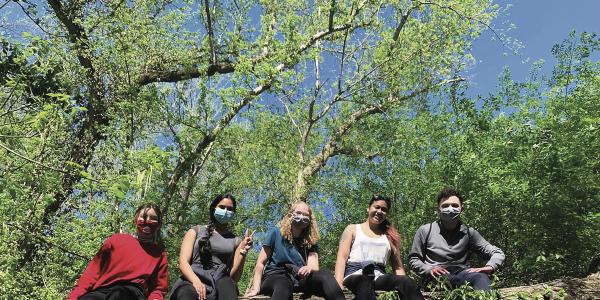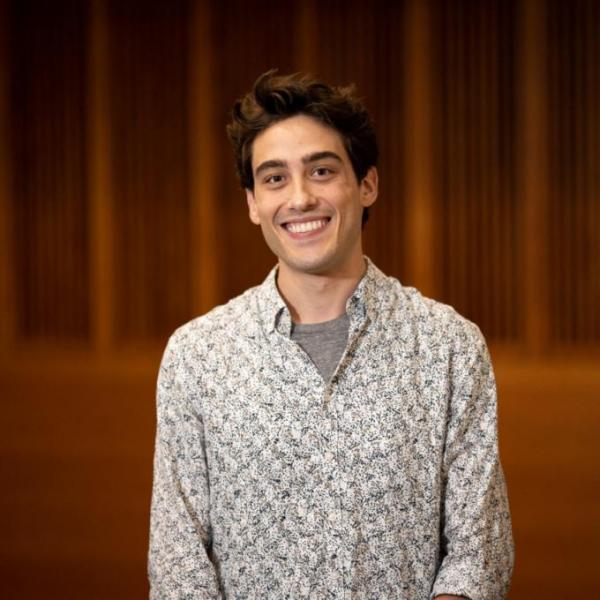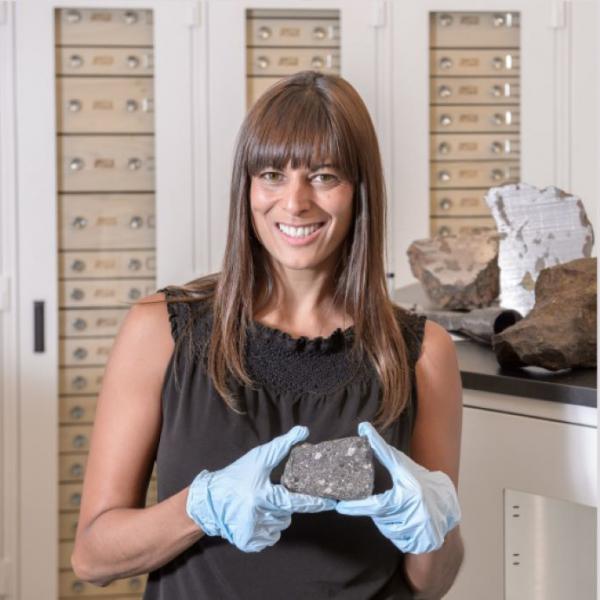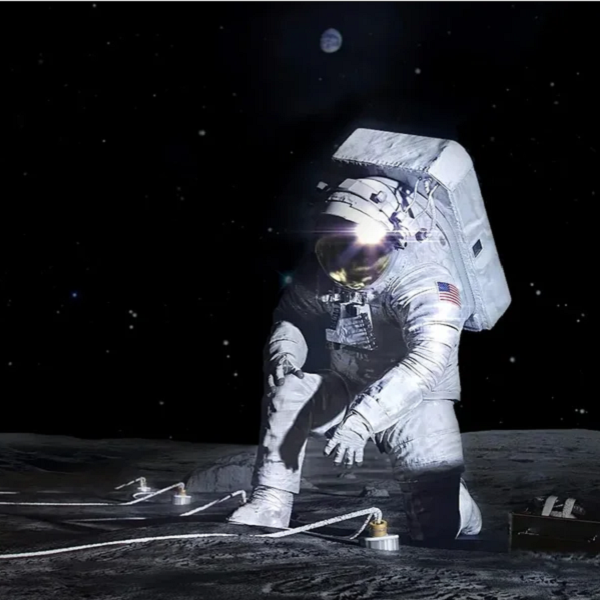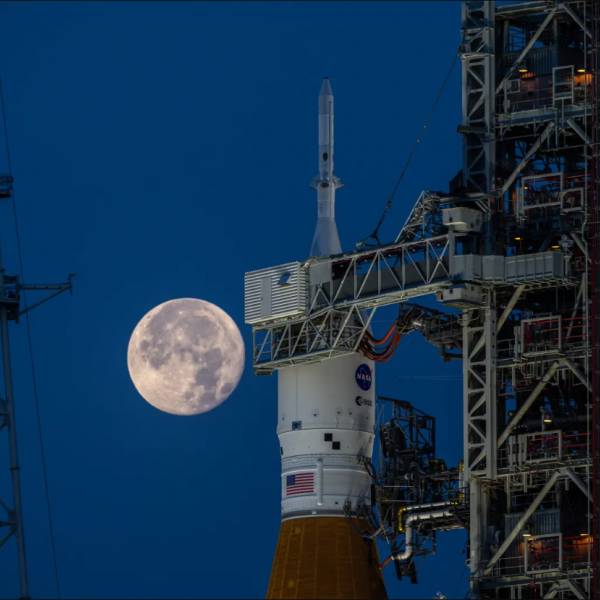Founded and organized by students, oSTEM, short for "Out in STEM," works to support and build community among queer students studying science, technology, engineering, and mathematics at WashU.
“I became a geologist because I knew I was safe and respected in the Earth and planetary sciences. I knew I could be myself around my peers and professors.”
For David Massey, AB 2022, choosing a major was not simply a question of what STEM topic he was most interested in pursuing. As a member of WashU’s LGBTQ community, it was crucial to him to be in classroom settings where he could be “out,” or express his queer identity openly.
“I’m a strong believer that your identity influences your lived experience and the way you navigate the world,” Massey said. “That’s why it’s so important to me to have a space where I can be out in a professional way. Otherwise, I feel inauthentic.”
In Massey’s experience, the Department of Earth and Planetary Sciences’ relatively small size has allowed it to be “ahead of the curve” in creating a sense of community among queer students. This, he believes, offers an advantage to the department. “One of the main ways we can recruit more people is creating an open, honest, and safe space for people of all different identities and all different backgrounds. That’s what got me here — I felt that I could be my authentic self in EPS classes.”
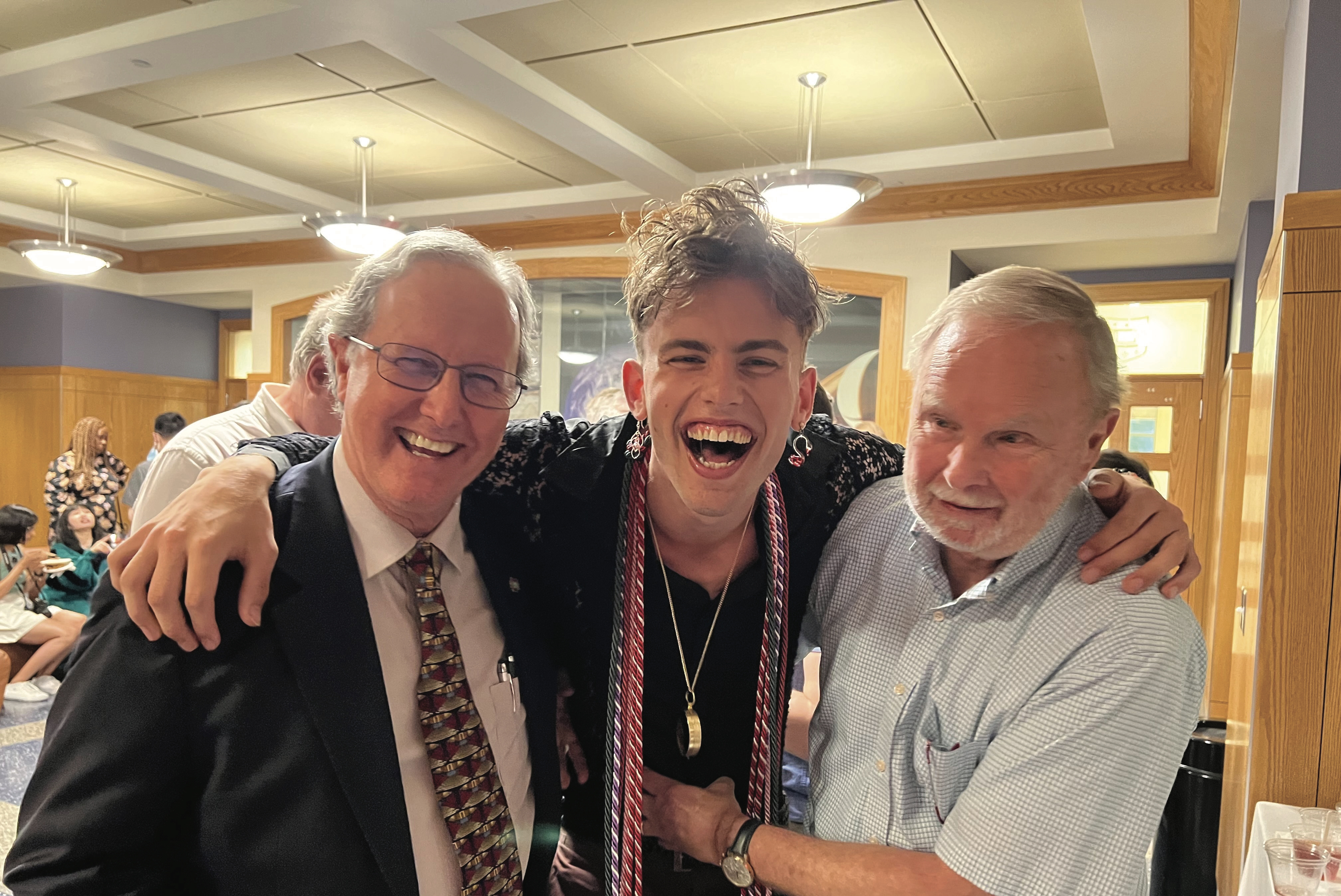
But Massey does not think such spaces should be limited to EPS. As the previous president of oSTEM (short for “Out in STEM”), a group for LGBTQ students majoring in STEM fields at WashU, Massey wants queer STEM students across the university to be supported as they integrate their identities into their academic and professional lives.
According to Jocelyn Epstein, the current co-president of oSTEM, such integration can be especially difficult in STEM classes. “I’ve only taken a few non-STEM classes, but in those classes we always introduced ourselves and said our pronouns at the beginning of each semester. In my STEM classes, that hasn’t been the case. There’s very little room for individuality; it’s more about your abilities as a student, your abilities in the lab, your abilities as a researcher,” Epstein said. “As a result, I think people feel less connected with the professor and the other students in the room, and maybe they don’t feel as validated in their identity because they can’t be their authentic self — it’s seen as unprofessional.”
According to Massey, this separation of identity and STEM is motivated by a view of queer identity as part of your “private life” that would only distract from work. For oSTEM members like Lawton Blanchard, however, the opposite is true. When STEM classrooms neglected to acknowledge or affirm her identity as a transgender woman, it became more difficult for her to focus on academics.
“I spent so much of my time at WashU trying to prove I have a space here that I didn’t have as much time or energy to learn,” Blanchard said. “I had to put up with so many distractions that other people don’t even have to think about.” When STEM classes lacked introductions, Blanchard was repeatedly misgendered in them. Even after spending precious money and time on her efforts to present as a woman, these efforts would often be regarded with suspicion by peers.
At one point, tensions between Blanchard’s classes and open gender expression led her to change her major. “Things have gotten better since I started at WashU,” Blanchard said. “But only because people like me have been fighting like hell for it.”
In the spring, fighting for trans rights was an important part of oSTEM’s programming. “We were part of planning a rally standing up for trans rights in the wake of Missouri passing all of these scary pieces of legislation,” Massey said. “We are living in a time with unprecedented trans hate and queerphobia in Missouri’s legislature.” For Massey and other student leaders, this kind of civic engagement is integral to their experience as active members of the WashU and broader St. Louis communities.
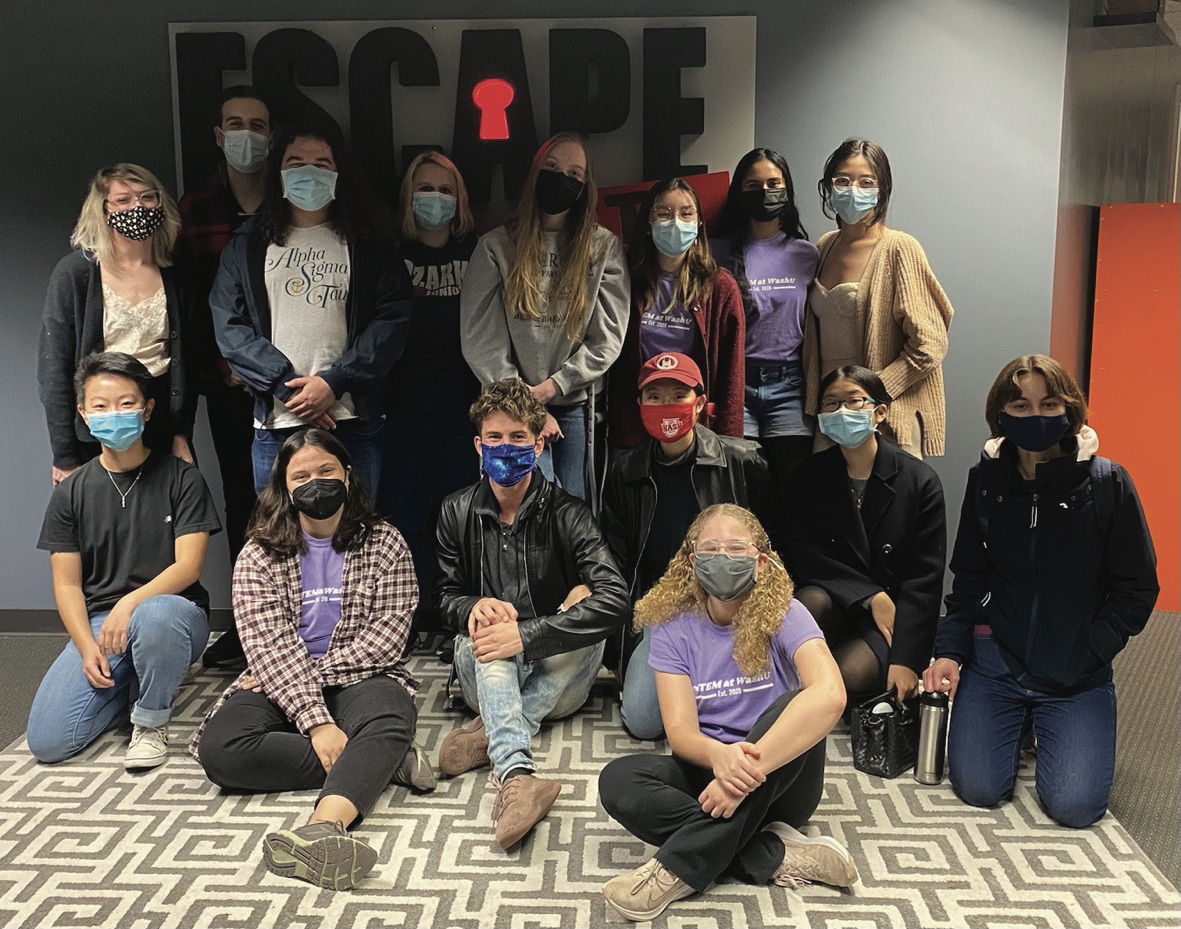
In addition to activism events, oSTEM provides opportunities for queer students and allies to form a sense of community that might be missing in their classes. “We’ve had game nights, pizza nights, movie nights — anything where people can just hang out and enjoy each other’s company,” Epstein said. “Once a week, no matter what’s going on, I can spend time with students I might not have known because they’re not in my major, but who have common interests and similarities to me.”
Encouraged by her cousin, Anna Baker, AB 2020, an EPS alumna and oSTEM co-founder, Epstein joined oSTEM before she even arrived at WashU. “The club is made up of my best friends,” Epstein said. “That’s the best thing about it. It was such a warm welcome to WashU.”
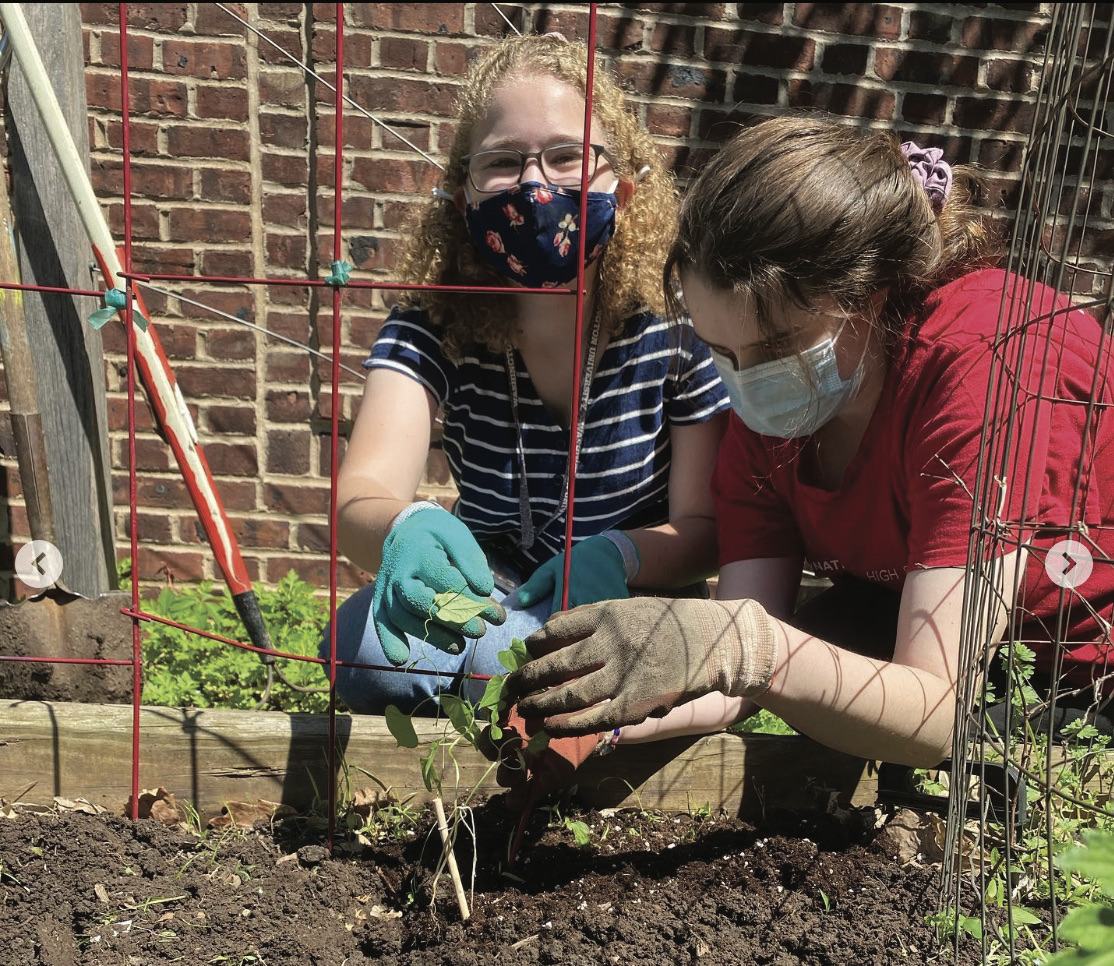
Epstein is also grateful for the professional guidance and opportunities she has gained from oSTEM. “One of my favorite events was our ‘OUTer Space’ event, where we brought in Dr. Troy Hudson, a system engineer at NASA’s Jet Propulsion Laboratory,” Epstein recalled. “Dr. Hudson talked about being open about his queer identity at work and how his desire to be authentic in the workplace led to so many other people feeling comfort with it. He was able to create a community of other queer people and allies at NASA, which sparked this movement within NASA to become more welcoming to gay scientists and engineers.”
“It was amazing to see how Dr. Hudson was so open and unashamed of his identity at work,” Epstein added. “I was really inspired because I never imagined that as a possibility.”
Next year, Epstein hopes the WashU chapter will have funding to send students to oSTEM’s annual conference. At this conference, students from the 100+ chapters of oSTEM gather to network with representatives from organizations looking to increase LGBTQ representation, including Accenture and Fermilab.
“At the conference, you get to talk to people who are queer and working at these well-known organizations. You learn what their experience is like, which I think is very valuable for a student looking for an internship, a job, or a graduate school opportunity,” Epstein said. “You want to find a place where other queer people have had positive experiences. If you can bring more of yourself to your work, you can be a better student, a better employee, and a better researcher.”
Post-graduation, Massey has found this to be true for himself. Through an oSTEM connection, he landed a consulting job at Deloitte in Denver, Colorado. In this job, he feels he can not only stand up for his queer identity, but also use it as an asset. “A lot of my work is going to be talking to people about their experiences and how I can make their lives easier. Because of my lived identity — experiencing the queer culture and community and the connections I’ve made from it — I’ve met people from all walks of life. And I’ve learned to respect people for who they are, no matter where they come from or what they’ve grown up with.”

